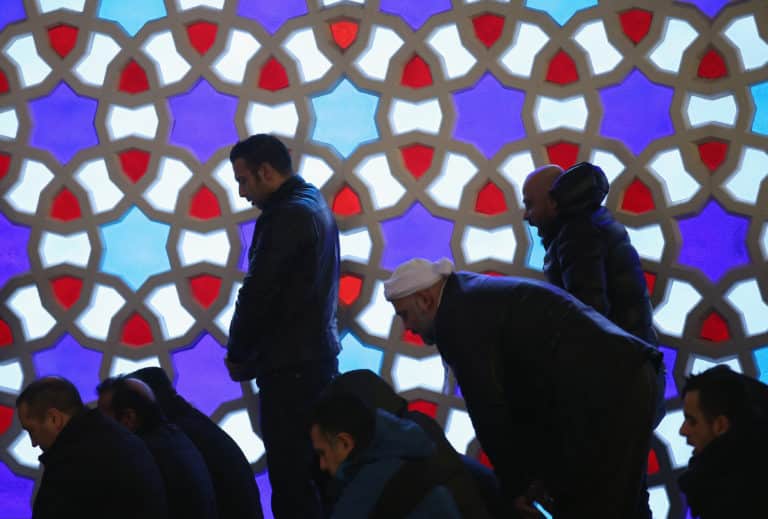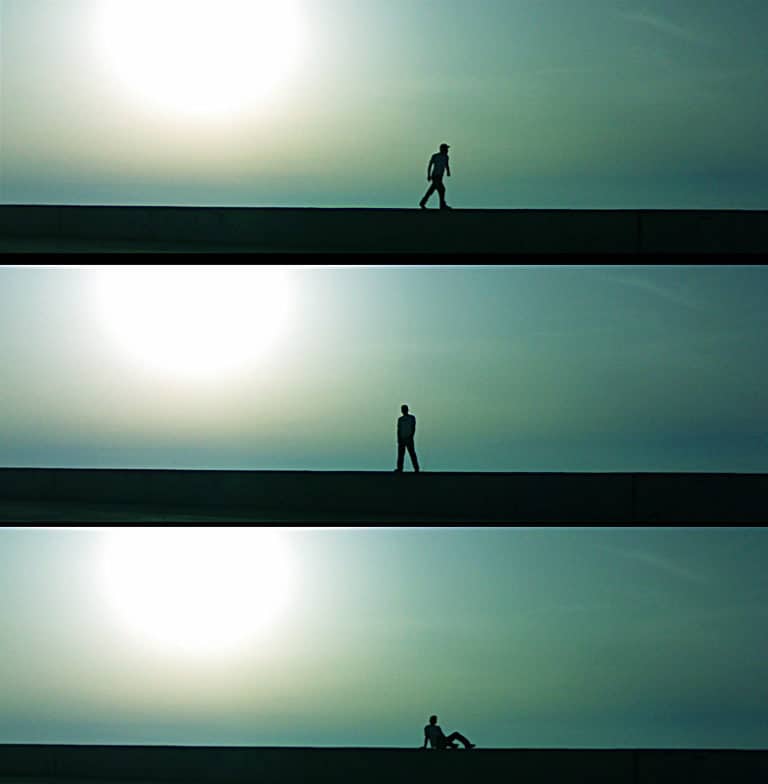
Image by Sean Gallup/Getty Images ..
Our Collective Guilt May Reclaim Our Full Humanity
Having had a few days to process, to grieve, to mourn, to read, and even to think (ideally before I speak) about the Paris shootings and Charlie Hebdo, there is one question that I has lingered with me: What is our responsibility to one another?
How are we accountable to one another, for one another? And to whom exactly are we accountable? Perhaps more specifically: in what way are each of us accountable to the worst actions of the worst in our community?
What got me thinking, believe it or not, was Rupert Murdoch. Yes, the Fox News Murdoch. In the aftermath of the Paris shooting, Murdoch posted a tweet:
Maybe most Moslems peaceful, but until they recognize and destroy their growing jihadist cancer they must be held responsible.
— Rupert Murdoch (@rupertmurdoch) January 10, 2015
Hmmm. There is something ominous about “they must be held responsible.”
“They.” Muslims are not present in this discussion. “They” are simply the absent object of Murdoch’s diatribe. Muslims. They.
Muslims, even “peaceful Muslims,” according to Murdoch, “must be held responsible.” Held responsible in what sense? Morally? Ethically? Politically? Criminally?
What exactly would he have Muslims do? How do we convey to Murdoch (and his sympathizers) that I don’t have a secret phone line to Boko Haram, Al-Qaeda, and Taliban leaders? I don’t have a secret email that I send out which says: “Abort mission. Stop being idiots. Stop making a mockery of the compassionate teachings of the Prophet.” (I wish I did. But I don’t.)
In the context of the Paris shootings and Charlie Hebdo, it is no surprise that the best responses to Murdoch contained an element of… satire. The first came from J. K. Rowling, the famed author of Harry Potter series (loved by millions, including this Muslim household):
I was born Christian. If that makes Rupert Murdoch my responsibility, I’ll auto-excommunicate. http://t.co/Atw1wNk8UX
— J.K. Rowling (@jk_rowling) January 11, 2015
Rowling wasn’t done. She extended Murdoch’s logic to its logical conclusion, pointing out that if we are all responsible for our co-religionists, then she’s responsible and accountable for the Inquisition, etc:
.@dom209 The Spanish Inquisition was my fault, as is all Christian fundamentalist violence. Oh, and Jim Bakker.
— J.K. Rowling (@jk_rowling) January 11, 2015
The other satirical response came from Jon Stewart, which, though it claims to be a “fake news show” and a “satire,” is perhaps America’s most important and influential political commentary. Jon Stewart was joined by three correspondents (one African-American, one Caucasian-American, one Muslim-American), in which they humorously discussed the various standards of condemning terror and violence. The Muslim correspondent “unequivocally” condemned violence, but it was deemed not to be “condemny” enough by the other correspondents.
Condemny. That’s about as perfect as it gets. That seems to be what many people are demanding from Muslims in the aftermath of each tragedy. Be condemny as loud as possible.
Over the course of the last few years, this is the ritual that we hear from Muslim communities as soon as there is an act of violence somewhere committed by Muslims — which, let’s be honest, is entirely too frequently. As in, one is too many. How do Muslims over here respond to acts of violence over there committed by others who share their faith?
Let’s explore the options.
Option #1: Say nothing. Then we will have people say that Muslims have not condemned terrorism. And there is the whole being silent in the face of evil thing. No good.
Option #2: Say that there are lots of different interpretations of Islam, and this is one of them. Then folks will say, “See, we told you, there is a violent side to Islam.”
Option #3: Move into a rapid mantra of “We hate and condemn, we hate and condemn.” Repeat as often as possible. This has been the go-to method of operation Muslims ever since 9/11. “We condemn these actions; these actions do not represent real Islam; Islamic teachings forbid the taking of human life.” You get the picture.
Hate and condemn. We are not them. They are not us. Be condemny, as frequent as possible.
I understand this response. It’s a natural response. And it seems somehow vacuous. Safe.
It is also entirely defensive. It is a posture that mostly serves to protect us — the “good peaceful” Muslims — and demarcate us from “other” Muslims. It is a desperate plea to not be hated, not be persecuted. But it is so defensive that it consists entirely of a “this is not Islam” explanation. It actually offers us no possibility to speak of what Islam does stand for, can stand for, should stand for, and by the grace of God will stand for.
There is another concern I have. When Muslims are put in this condemny stance, we speak against the violence of fellow co-religionists, but we are prevented from also taking a stance against the violence of the state — be it the American state, the Israeli state, or other state. This is the shortcoming of the “good Muslim” paradigm. You can be a “good Muslim” only in so much as you dismiss and denounce the actions of Muslim extremists. Speaking out against the injustices of one’s own society, including the violence of one’s own American state jeopardizes the “good Muslim”/”moderate Muslim” stance one has worked so hard to occupy.
But let’s go back to being condemny. Responding with a healthy dose of humor, a Muslim humorist has offered the Muslim iCondemn app, which generates random Muslim condemnations and measures the guilt of Western Muslims. Another Muslim commentator stated this short and clever column on collective guilt.
So if we are not going to go down the rabbit hole with Rupert Murdoch, what can we say? What responsibilities do each of us have towards one another? What responsibilities do American Jews have towards atrocities committed by the Israeli state? What responsibilities do American Hindus have towards polities of the Indian state? What responsibilities do American Christians have towards the atrocities of Central African Republic militias?
I come back to the point I had raised sometime ago about ISIS. Maybe the best that can be said is that we, all of us, are accountable. All of us are responsible for all of us. As long as any of us are suffering on this planet, all of us are responsible.
Rabbi Heschel was right: Few are guilty, all are responsible. Maybe that’s the best and most moral response possible. We are all responsible. We are all responsible for all of us.
We are all responsible for Charlie Hebdo.
We are all responsible for Nigeria and Boko Haram.
We are all responsible for Syria.
We are all responsible for Palestine/Israel.
We are all responsible for Myanamar.
We are all responsible for Ferguson.
We are all responsible for Guantanamo.
We are all responsible for all of us.
We are all our brothers’ and our sisters’ keepers.
If there is a collective guilt, it is for the whole human community. Maybe this is how we will reclaim our full humanity, by being responsible for all of us humans.

